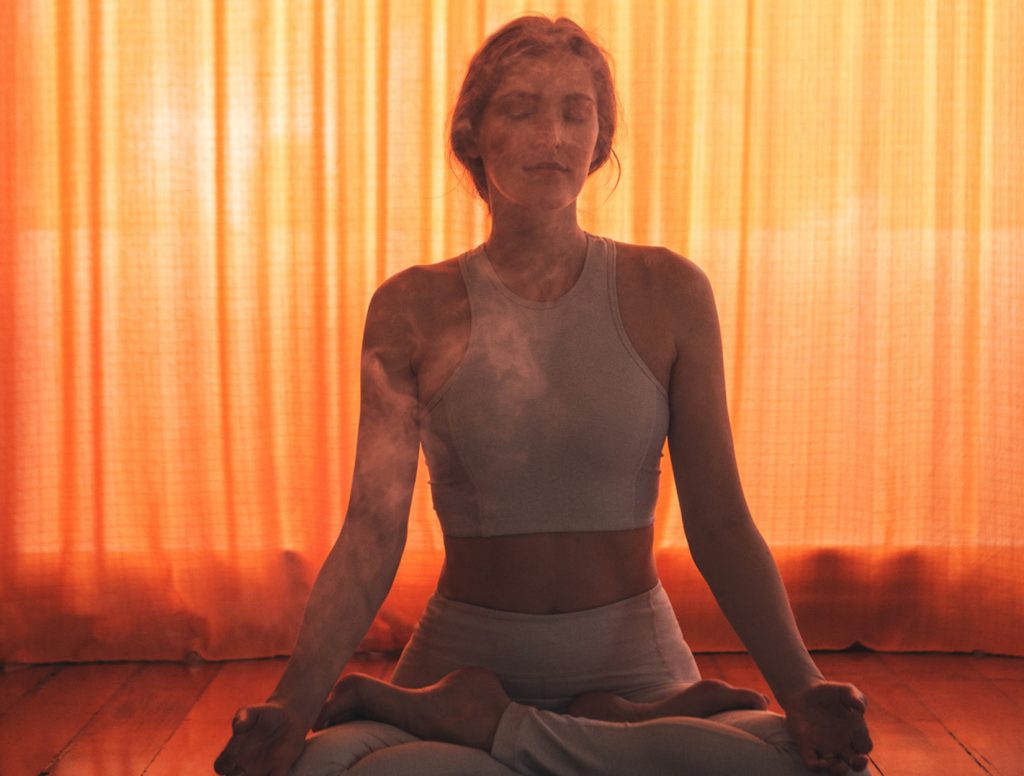The Influence of Nigerian Traditions on the Creation of Meditation Rituals in Bathing

Nigerian Bathing Traditions: More Than Just Hygiene
Nigerian culture is an intricate tapestry woven from a variety of ethnic groups, languages, and age-old traditions. At the heart of many daily practices is the concept of meditation rituals tied to bathing, which symbolizes far more than mere personal cleanliness. This unique intersection of spirituality and physicality offers profound insights into the collective psyche of Nigerian society.
The Multifaceted Nature of Bathing
In Nigeria, bathing transcends the basic function of maintaining hygiene. It emerges as a cherished ritual that serves three critical purposes:
- A time for physical cleansing: The primary aim of bathing is undoubtedly to cleanse the body. Nigerians often engage in this practice multiple times a day, utilizing various soaps, scrubs, and natural ingredients to ensure a thorough clean.
- A moment for spiritual reflection: Many individuals view their bathing routine as a sacred time for introspection and prayer, allowing them to connect with their higher selves and set intentions for the day ahead.
- A practice steeped in community and family traditions: Bathing rituals are often communal, especially among families. It serves as a bonding activity, reinforcing social ties and family unity.
Cultural Expressions Through Bathing
Different ethnic groups within Nigeria bring their own distinct practices to these meditation rituals, enriching the tradition and highlighting their cultural triumphs:
- The Yoruba community: Known for their vibrant culture, the Yoruba people integrate aromatherapy into their bathing rituals using a variety of locally sourced herbs and essential oils. These aromatic elements are believed to enhance the bathing experience and promote relaxation.
- The Igbo people: In Igbo culture, bathing is often accompanied by the recitation of prayers and incantations intended to invoke protection and blessings. This spiritual dialogue with the divine adds a deeply personal layer to what might otherwise be a mundane routine.
- The Hausa tradition: The Hausa people emphasize purification rituals, particularly during significant life events, such as weddings or childbirth. This practice underscores the significance of spiritual cleansing in preparation for important transitions.
Water: A Medium for Connection
Through these diverse customs, Nigerians cultivate a profound relationship between body and spirit, viewing water as a conduit to both physical rejuvenation and spiritual enlightenment. The act of bathing becomes a transformative experience that encourages mindfulness and fosters a deeper understanding of oneself within the broader community context.
Examining the meditation rituals associated with bathing reveals how deeply traditional beliefs continue to permeate modern spirituality in Nigeria. These practices not only serve to ground individuals but also stimulate dialogue about cultural continuity in a rapidly changing world. They remind us of the beauty and wisdom embedded in everyday rituals and their lingering effect on Nigerian society.

As we delve deeper into these fascinating customs, we uncover a rich narrative of personal and communal identity that is vital to the understanding of contemporary Nigerian life. Exploring such practices may inspire further conversations around the importance of cultural preservation and spiritual mindfulness in our increasingly globalized society.
YOU MAY ALSO LIKE: Read read another article
Reverberations of Tradition in Bathing Practices
The act of bathing in Nigeria stands as a powerful testament to the rich cultural heritage that shapes the rituals surrounding it. As Nigerian traditions continually evolve, they interweave with contemporary spiritual practices, creating a unique landscape where meditation rituals flourish during bathing. This phenomenon invites a closer inspection of how these time-honored customs lend themselves to a more profound understanding of self and community.
Rituals Rooted in Ancestral Beliefs
Across various ethnic groups in Nigeria, bathing rituals are not merely about personal cleanliness; they are rooted in ancestral beliefs that saw water as a divine element possessing purifying qualities. The role of water in these meditation rituals fosters a sense of cleansing that extends beyond the physical. It embodies a metaphysical connection to the spirits of ancestors and the natural world. This perspective is prevalent across Nigeria’s multiple cultures, reflecting a collective understanding of bathing as an essential ritual for both external and internal purification.
The Role of Symbolism in Bathing
The symbolism intertwined with bathing rituals is profound, drawing on elements deeply embedded within Nigerian traditions:
- Water as Life: Water is often regarded not just as a physical necessity but as a sacred life-giving force. This belief imbues the bathing process with significance, representing renewal and rebirth, which catalyzes an individual’s spiritual journey.
- Connection to Nature: Many tribes emphasize the harmony between the individual and their environment. Bathing rituals often include using natural resources, such as herbs, flowers, and minerals, reflecting the belief that nature is a source of healing and strength.
- Community Solidarity: In many cultures, bathing rituals are communal, tying individuals together in shared experiences. These gatherings reinforce communal bonds while allowing members to engage in spiritual dialogue, creating a supportive atmosphere where personal and collective intentions can be set.
Furthermore, the various elements woven into the bathing process include specific songs, chants, and prayers that transform it into a performing art. It becomes a ritual that resonates with the heart and spirit, acting as both a cleansing process and a form of meditation that fosters mindfulness.
Shaping Modern Spirituality
The enduring influence of Nigerian traditions on bathing underscores a broader cultural narrative, where ancient wisdom informs modern practices. The meditation rituals that accompany bathing remain vital for those seeking to kindle a deeper connection with their spirituality while remaining grounded in their heritage. This practice of melding the old with the new allows individuals to explore personal beliefs amid the dynamism of contemporary life, reinforcing the idea that tradition is not static but continuously evolving.
As Nigerian society continues to navigate the currents of globalization, these bathing rituals serve as a powerful symbol of cultural resilience and adaptability. Through these everyday practices, the essence of Nigerian traditions not only survives but thrives, fostering a uniquely Nigerian path to spiritual fulfillment and mindfulness.
The interweaving of Nigerian traditions and meditation rituals in the practice of bathing reveals fascinating insights into cultural identity and mental well-being. Historically, bathing has transcended mere hygiene to become a sacred ritual, infused with deep spirituality and purpose. In many Nigerian cultures, water symbolizes cleansing, purification, and the renewal of spirit, serving as a bridge between the physical and spiritual realms.Incorporating traditional medicinal herbs, essential oils, and indigenous techniques, these bathing rituals often aim to achieve mental clarity and emotional balance. For instance, the use of local plants like bitter leaf or neem not only emphasizes health benefits but also connects individuals to their cultural roots. These practices create a holistic experience, merging sensory elements such as scents, textures, and sounds that promote mindfulness and meditation.Additionally, communal bathing sessions represent a social aspect of these rituals, fostering relationships and a sense of belonging, which is essential for emotional health. The act of bathing, thus, becomes a shared celebration of tradition, enhancing group bonds while simultaneously allowing individuals to reflect inwardly. Such integration of community with personal introspection highlights how traditional Nigerian values shape contemporary approaches to mindfulness and wellness.Through these practices, there emerges a greater appreciation for the therapeutic benefits of bathing rituals, prompting individuals to engage with their heritage while nurturing their mental health. The increasing awareness of these practices in urban areas through wellness retreats and workshops further demonstrates the relevance of traditional beliefs in today’s fast-paced world. As modern societies look towards holistic health practices, the influence of Nigerian traditions offers invaluable insights into creating meaningful experiences that soothe both body and mind.
LEARN MORE: This related article may interest you
Integration of Cultural Practices in Modern Bathing
The rich tapestry of Nigerian traditions significantly influences how meditation rituals in bathing are perceived and practiced, particularly in urbanized settings where the hustle of daily life often overshadows the spiritual. For many Nigerians, the act of bathing transcends mere hygiene; it is a sensory experience that invites individuals to embrace their roots while fostering present-moment awareness.
The Use of Herbal Remedies
Incorporating traditional herbs and plants into bathing rituals imbues the process with cultural significance and therapeutic benefits. For instance, the use of nigella sativa (black seed) and scent leaf not only reflects Nigeria’s rich healing practices but also enhances one’s meditation experience by engaging the senses. As bathers steep these natural elements in warm water, the aromas begin to engage the mind, promoting relaxation and focus.
Furthermore, the ritual of adding herbs is often accompanied by individual intentions. Bathers might whisper prayers or affirmations resonating with specific requests – be it healing, guidance, or gratitude. This practice forms part of a deeply personal meditation ritual that embodies a connection to both the past and present, reinforcing a sense of identity in an ever-changing world.
Rituals that Encourage Mindfulness
The modern-day embodiment of traditional bathing rituals serves as a powerful avenue for mindfulness. Nigerians, particularly in urban areas, often face immense pressure from their surroundings, leading many to adopt times of solitude during bathing. This moment of retreat has transformed into a sacred space where individuals can focus on their breathing, embody presence, and cultivate a mindset attuned to gratitude and reflection.
Moreover, many communities incorporate communal aspects into their bathing practices. In rural settings, group bathing rituals allow for collective healing, where stories and experiences are shared alongside the act of cleansing, reinforcing the idea of solidarity. These gatherings integrate aspects of social bonding and spiritual exploration, demonstrating how communal traditions can evolve while maintaining their essence. Participants often engage in chants or rhythmic songs during the bathing process, heightening the meditative experience and deepening the interconnectedness with both the ritual and one another.
Adapting to Modern Influences
The intersection of Nigerian traditions and contemporary techniques is evident as bathers increasingly explore various meditation rituals seen in global wellness movements. With the rise of wellness culture, yoga practices—which often include cleansing rites—have made their way into Nigerian urban lifestyles. Many Nigerians are blending Western practices with indigenous ones, searching for unique ways to find balance and mental clarity. Incorporating elements like aromatherapy or mindful breathing techniques into traditional bathing rituals resonates with a younger generation seeking holistic wellness.
This adaptation does not erase Nigerian traditions; rather, it enriches them by promoting inclusivity in spiritual practices. As individuals arm themselves with diverse tools, from traditional roots to modern modalities, they embark on journeys of self-discovery, employing meditation rituals within their bathing practices as a profound means to cultivate personal harmony amidst life’s chaos.
CHECK OUT: Click here to explore more
Conclusion
The integration of Nigerian traditions into meditation rituals during bathing represents a rich confluence of history and contemporary wellness practices. As Nigerians navigate the complexities of modern life, the ritual of bathing emerges as a sanctuary—a time to pause, reflect, and connect with both the ancestral legacies and the present moment. The use of traditional herbs, the incorporation of solemn intentions, and the communal experiences not only enhance the sensory aspects of bathing but also serve as powerful catalysts for mindfulness.
This unique blend of Nigerian heritage with modern wellness trends underscores the adaptability of these rituals. From the embracing aromas of herbs like nigella sativa to the meditative stillness found in water, each element reinforces personal and communal identity rooted in spirituality. The dialogue between the past and present enables individuals to reclaim moments of tranquility amidst life’s upheaval, ensuring that the sacredness of bathing is preserved and evolves over time.
Moreover, as younger generations continue to seek holistic approaches to well-being, the significance of these meditation rituals will likely expand, inviting further exploration of tradition and innovation. By understanding and honoring the rituals of our ancestors while integrating new elements, Nigerians can carve out a distinctive path towards personal harmony. Embracing this cultural heritage not only honors our roots but also inspires a collective journey towards mental and spiritual clarity that resonates with today’s fast-paced world.


